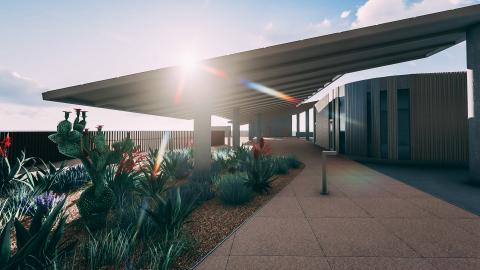
The University of Arizona (UArizona) in Tucson, Arizona, has been an NCSE Member for 15 years and takes a truly transdisciplinary approach to environmental research. Through university-wide and college-level research institutes and centers that bring together and connect their outstanding environmental faculty to tackle the world’s grand challenges, UArizona seamlessly incorporates the expertise and needs from Arizona communities, industry, and government stakeholders. The breadth of environmental research and academic programs at UArizona spans focus areas from environmental economics and business systems to arts and humanities to environment and public health to water resources—and many more.
The UArizona Office for Research, Innovation and Impact recently formed the Arizona Institutes for Resilience, or AIR. AIR is a “constellation” of 11 institutes, cCenters, and pPrograms that, in aggregate, aim to better understand environmental challenges and to develop solutions that tangibly improve people’s resilience in the face of environmental shocks, including those due to impacts of climate change. The UArizona’s Office of Sustainability focuses on sustainability efforts that are environmentally sound, socially just, and economically viable across the university campus and broader community. This includes Compost Cats, one of the longest-running student sustainability programs at the university.
UArizona faculty and student researchers work alongside community partners to offer decision-makers the most forward-thinking strategies to combat the climate crisis and other environmental challenges. Through the University Climate Change Coalition, AIR builds on the university’s role as a land-grant university, exemplifying sustainable practices and social and environmental justice, enabling innovation, and taking science-based solutions into the real world to prepare for a new era of environmental realities.
Did You Know? The LEED-platinum certified Environment and Natural Resources 2 (ENR2) building on the university campus is currently transforming its roof to an agrivoltaic green roof, integrating photovoltaic energy and agricultural production to improve both solar panel efficiency and plant production.